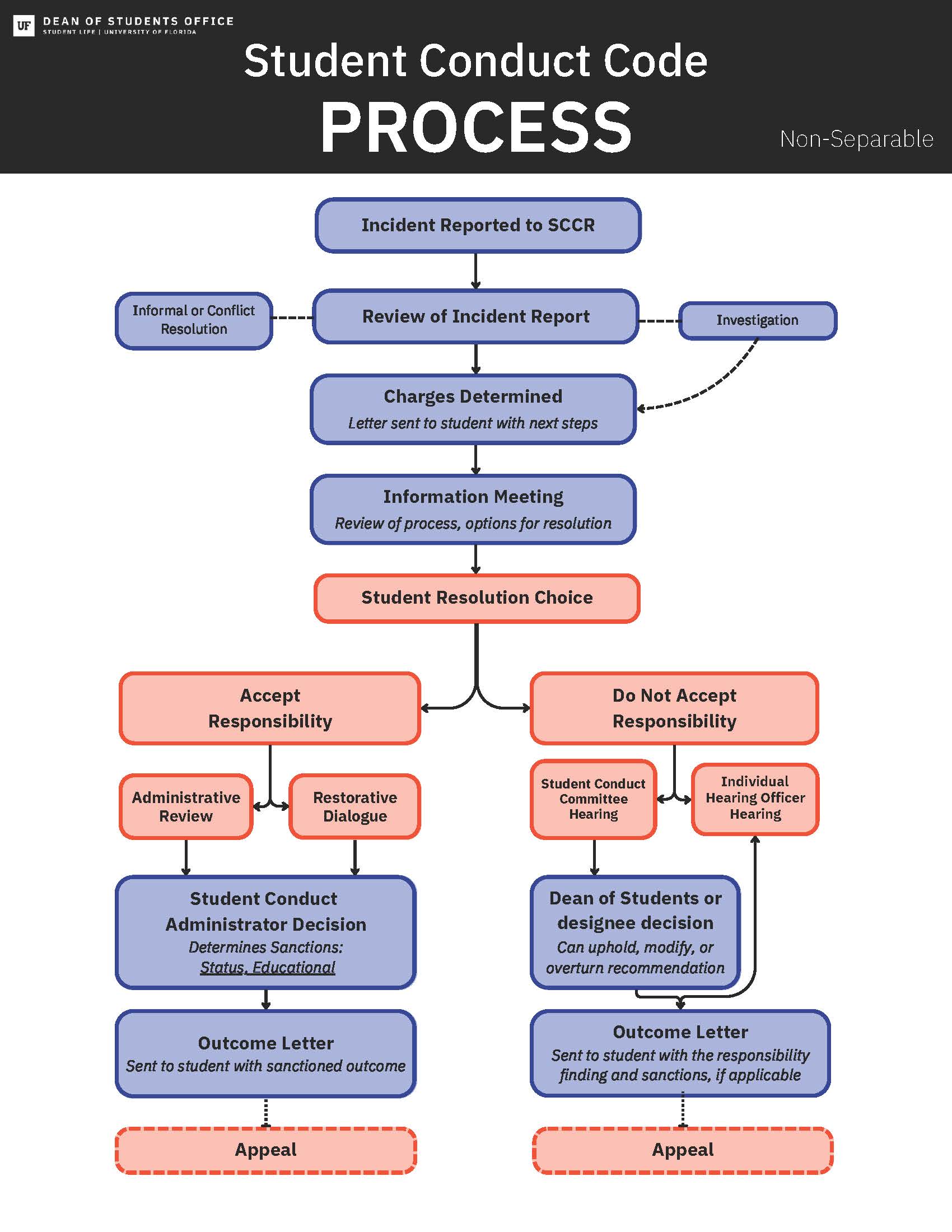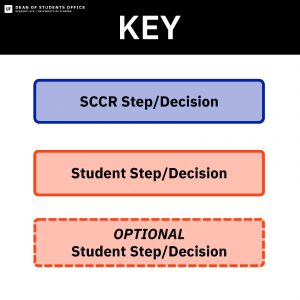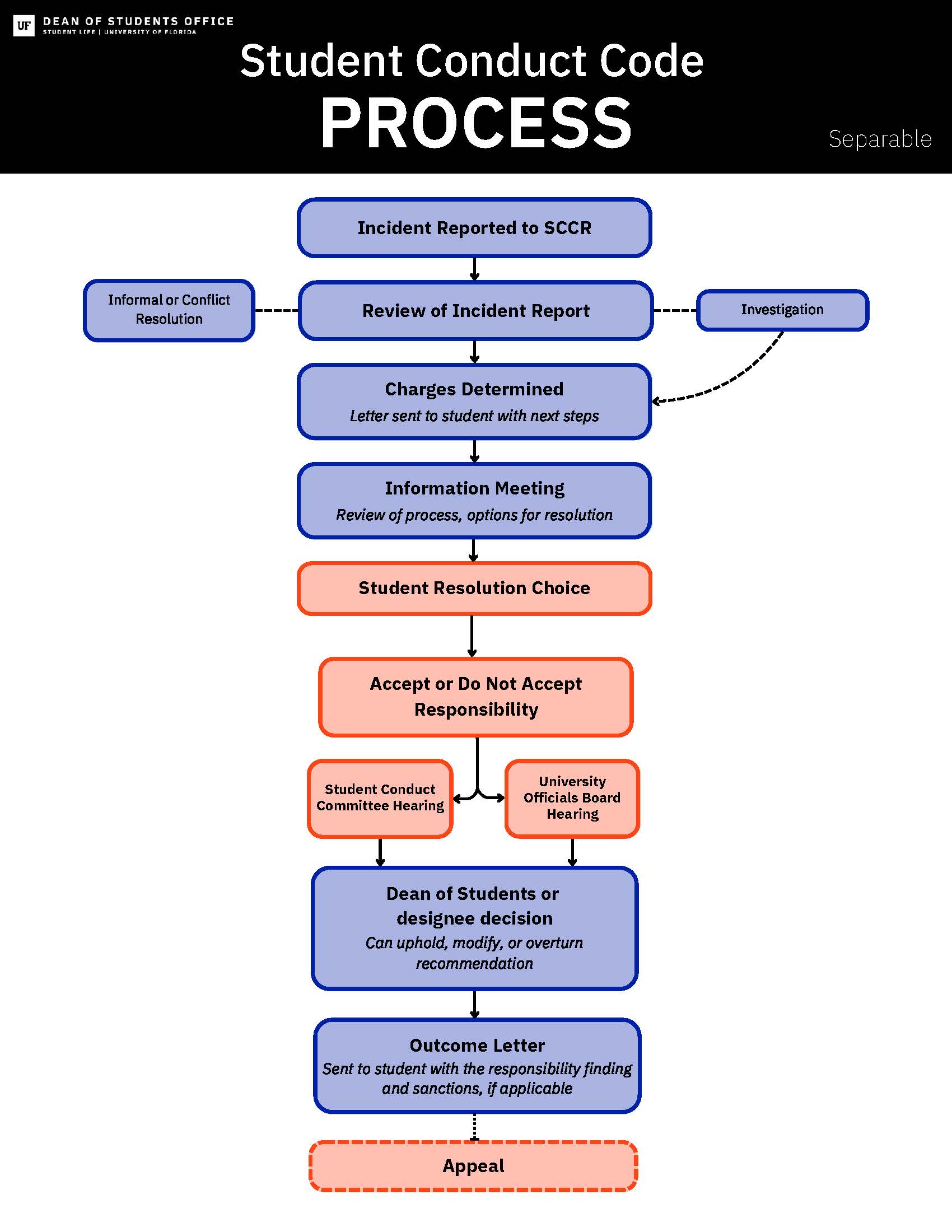The image below depicts the Student Conduct Code process for non-separable cases, as explained in Regulation 4.040.


The image below depicts the Student Conduct Code process for potentially separable cases, as explained in Regulation 4.040.


VIEW THE COMPLETE STUDENT HONOR CODE & STUDENT CONDUCT CODE.